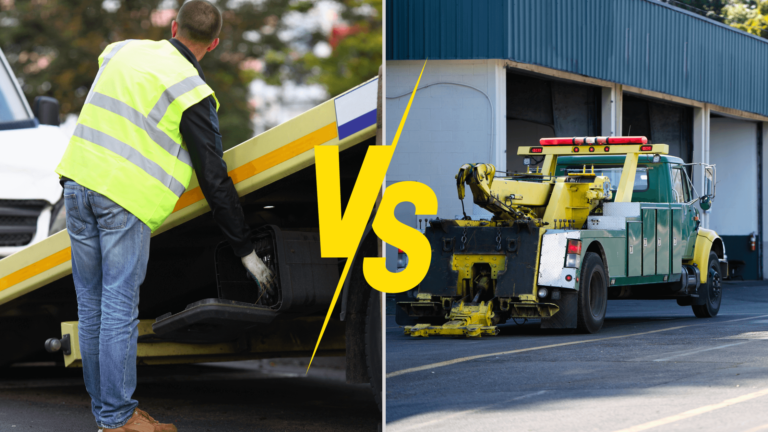Car breakdowns can be both frustrating and stressful, especially when they happen unexpectedly. Imagine you’re driving on a remote road, and your car suddenly sputters to a stop. In such situations, having reliable roadside assistance can be a real lifesaver. This article will delve into the world of roadside assistance, explaining why it’s an essential service for any car owner and how it can provide peace of mind when the unexpected occurs.
Types of Roadside Assistance Services
There are different types of roadside assistance services, from basic plans that cover essential services to premium packages that include additional perks like trip interruption coverage and concierge services. Choosing the right plan depends on your specific needs and preferences.
What's causing all these car breakdowns?
Flat or faulty batteries
A flat or faulty battery can leave you stranded and frustrated, especially on a busy day in the UK. Car batteries play a pivotal part in starting your vehicle and powering its electrical systems. Over time, batteries lose their capacity to hold a charge, and extreme temperatures can accelerate this process. If your battery is weak or dead, your car may struggle to start, leaving you in need of a jump-start or a new battery.
Tyre and wheel damage
Tyre and wheel issues are among the most frequent causes of breaking vehicles in the UK. Punctured or damaged tyres can result from road debris, potholes, or worn-out treads. It’s essential to regularly inspect your tyres for proper inflation and tread depth. A sudden flat tyre or a blowout can be not only inconvenient but also dangerous, particularly on traffic-heavy roads.
Faulty spark plugs
Spark plugs are tiny but vital components in your car’s engine. They play a significant part in creating the spark needed to ignite the air-fuel mixture in each cylinder, driving the pistons and powering your vehicle. When spark plugs wear out or become fouled with deposits, it can lead to poor engine performance, including misfires, reduced fuel efficiency, and difficulty starting your car.
Issues with the high-tension leads
High-tension leads, also known as ignition wires or spark plug wires, are responsible for transmitting the electrical current from the distributor to the spark plugs. When these wires become damaged or aged, they can’t efficiently deliver the spark, causing misfires, rough engine operation, and even stalling.
A fault with the alternator
Your car’s alternator serves a critical part in generating electricity to charge the battery and power various electrical components, such as lights, radio, and air conditioning. A failing alternator can result in an undercharged or dead battery and electrical malfunctions. This, in turn, can lead to a sudden breakdown, especially if you rely heavily on electrical systems.
Burnt out clutch cables
For those who drive manual transmission cars, the clutch cable is an essential part that enables you to engage and disengage the clutch, allowing you to shift gears smoothly. When the clutch cable snaps or wears out, it can render your car immobile, leaving you unable to shift gears or continue driving.
Putting the wrong fuel in your car
Fuelling your car’s tank with the wrong type of fuel is a costly mistake. Petrol and diesel engines have different requirements, and using the wrong fuel can lead to engine damage. This can result in a breakdown, requiring expensive repairs and potentially leaving you stranded.
Running out of oil
Engine oil is the lifeblood of your vehicle’s powerplant, providing essential lubrication and heat dissipation. Neglecting regular oil changes or allowing the oil level to drop too low can lead to engine damage. A lack of proper lubrication can cause friction and heat to build up, eventually leading to a catastrophic breakdown.
Overheating
Overheating is a worrisome issue that often results from problems in the car’s cooling system. Malfunctions in the radiator, water pump, thermostat, or cooling fans can lead to excessive heat build-up. When your engine overheats, it can result in severe damage, potentially causing a complete breakdown if not addressed promptly. This situation may require towing and costly repairs. Regular maintenance, like checking your coolant levels and the condition of cooling system components, is essential to avoid overheating issues.
Check your vehicle to prevent a breakdown
When it comes to keeping your car in top shape, regular maintenance is key. Here are two critical aspects to pay attention to for ensuring your vehicle remains safe and reliable:
Fuel
Make sure you have an adequate fuel supply for your journey, especially during challenging UK winter conditions. Running out of fuel can lead to inconvenient breakdowns.
Engine Oil
Consistently monitor your vehicle’s oil levels. Startlingly, our patrols discover that one out of every three cars they assist has alarmingly low oil levels. Inadequate oil can result in engine breakdown and serious damage if not addressed.
Tyres and Wiper Blades
Frequently inspect both your tyres and wiper blades. Scrutinise your tyres for signs of wear, splits, bulges, and tread depth. Sufficient tread is vital for traction, particularly during winter. Ensure proper tyre pressure by consulting your owner’s handbook.
Cooling System
Regularly check your car’s coolant level to prevent potential engine freezing or overheating. Although it typically maintains a sealed system, it’s always wise to verify, particularly before embarking on long journeys. Refer to your handbook for the correct coolant type.
Electrical Components
Conduct regular inspections of your vehicle’s electrical components. Confirm that all lights, including number plate lights, are operating correctly. Examine your battery for cleanliness and secure terminals. If your engine struggles to start, especially in cold weather, seek professional assistance at a garage for battery checks. Additionally, request a comprehensive examination of the starting and charging system.
Windscreen Washer Fluid
Monitor the level of your screen wash under the bonnet and replenish it with high-quality screen wash. Maintaining clean windows is vital throughout the year, as various factors like snow, grit, insects, and pollen can impede your visibility.
Air Filter
A clogged air filter can diminish fuel efficiency and engine power. Experts recommend replacing it every 12 months or after covering 12,000 miles, whichever comes first. Consult your vehicle handbook for replacement guidelines.
Spark Plugs (Petrol Engines)
Spark plugs play a pivotal role in engine operation. A single faulty plug can trigger engine misfires. Generally, spark plugs require replacement every 30,000 miles. Ensure you possess the necessary tools and consider referencing your handbook or consulting a dealership for a DIY replacement.
Braking System
Well-functioning brakes are critical for safety. Monitor the brake fluid levels and top up if needed, adhering to the correct specifications. Exercise caution when handling brake fluid due to its corrosive nature. Consult your handbook for brake fluid change intervals.
Air Conditioning
Regardless of the weather, make sure your car’s air conditioning system is working well. For servicing, consult a qualified professional with the right tools. Insufficient cooling during the summer may require refilling from an authorised centre. Regular checks are vital. Monitor fuel level, oil level, and the tread depth of winter tyres (at least 3 mm). Pay attention to the coolant level and any leaks. Keep the windshield washer fluid supply and a clean air filter for a smooth journey.
Roadside Assistance vs. Insurance
Roadside Assistance
Insurance, on the other hand, primarily deals with financial coverage in case of accidents, damages, or theft. It provides compensation for damage to your vehicle or for third-party liabilities.
The Benefits of Roadside Assistance
- Immediate Help: Roadside Assistance ensures that help is just a phone call away. They dispatch professionals to your location swiftly, minimizing your downtime.
- Convenience: With Roadside Assistance, you don’t need to worry about the specifics of the issue. Professionals handle everything, so you can continue your journey with minimal hassle.
- Peace of Mind: Knowing that you have reliable assistance at your beck and call can significantly reduce the stress associated with unexpected car trouble.
When to Choose Roadside Assistance
Roadside Assistance is a valuable choice when your primary concern is immediate help during vehicle breakdowns or minor issues. If you’re often on the road and want peace of mind, it’s a prudent investment.
What Does Insurance Cover?
Insurance, on the other hand, primarily deals with financial coverage in case of accidents, damages, or theft. It provides compensation for damage to your vehicle or for third-party liabilities.
The Benefits of Insurance
- Financial Protection: Insurance provides financial coverage for repairs and replacements, which can be a substantial relief in case of accidents or vehicle damage.
- Legal Requirements: Insurance is often legally mandated, ensuring that all drivers are financially responsible for potential accidents or damages.
- Long-term Security: It offers long-term security by protecting you from major financial setbacks due to unexpected events.
When to Choose Insurance
Insurance is ideal if you want financial protection against accidents, theft, or extensive damage to your vehicle. It’s essential for legal compliance and provides long-term financial security.
The Cost Comparison
Roadside Assistance typically involves a smaller annual fee when compared to insurance premiums. However, the cost of insurance varies depending on multiple factors, including the type of coverage, the vehicle’s make and model, and the driver’s history.
Conclusion
In conclusion, roadside assistance is an indispensable service for car owners, offering immediate help during unexpected breakdowns, such as battery or tyre issues, spark plug problems, and more. It provides convenience, peace of mind, and swift professional support. On the other hand, insurance primarily deals with financial coverage for accidents, damages, or theft, offering long-term security and legal compliance. Roadside assistance is a prudent choice for those seeking immediate help, while insurance is ideal for long-term financial protection. Roadside assistance generally comes at a lower annual cost compared to insurance premiums.
AutoRescueZone: Your Road to Reliable Towing Services
AutoRescueZone is your ultimate partner for worry-free road trips. We offer swift and reliable roadside assistance, ensuring you’re back on your way with minimal delays. Our commitment to your peace of mind sets us apart. When it comes to car breakdowns, don’t let them ruin your day. Choose AutoRescueZone, the name you can trust for a smooth and secure journey.Discover the convenience and confidence of AutoRescueZone’s services today. Let us be your reliable companion on the road. Contact us now, and we’ll ensure you’re never stranded or stressed during your travels.
FAQs
Roadside assistance is a service that provides help when your vehicle breaks down, and it is crucial for car owners because it offers immediate assistance, ensuring that you don’t get stranded in the event of a breakdown.
Roadside assistance plans can cover a range of services, including jump-starts for dead batteries, tire changes, fuel delivery, towing, and even services like trip interruption coverage and concierge services in premium packages.
Preventing breakdowns involves regular vehicle maintenance, such as checking fuel levels, monitoring oil levels, inspecting tires, ensuring proper coolant levels, and maintaining electrical components. These measures can help keep your vehicle in top shape and reduce the risk of unexpected breakdowns.
Roadside assistance is primarily focused on providing immediate help during breakdowns or minor issues, while car insurance deals with financial coverage for accidents, damages, or theft. Roadside assistance offers convenience and peace of mind during roadside emergencies, while insurance provides long-term financial protection.
You should choose roadside assistance when your primary concern is immediate help during vehicle breakdowns or minor issues. On the other hand, car insurance is ideal if you want financial protection against accidents, theft, or extensive damage to your vehicle. The choice depends on your specific needs and preferences.



